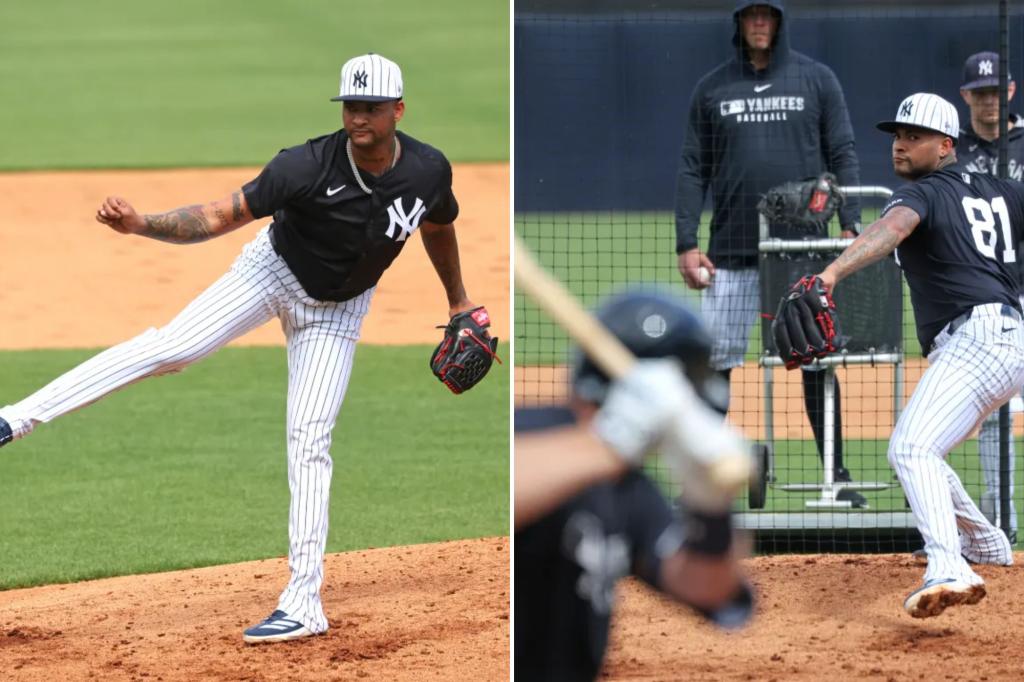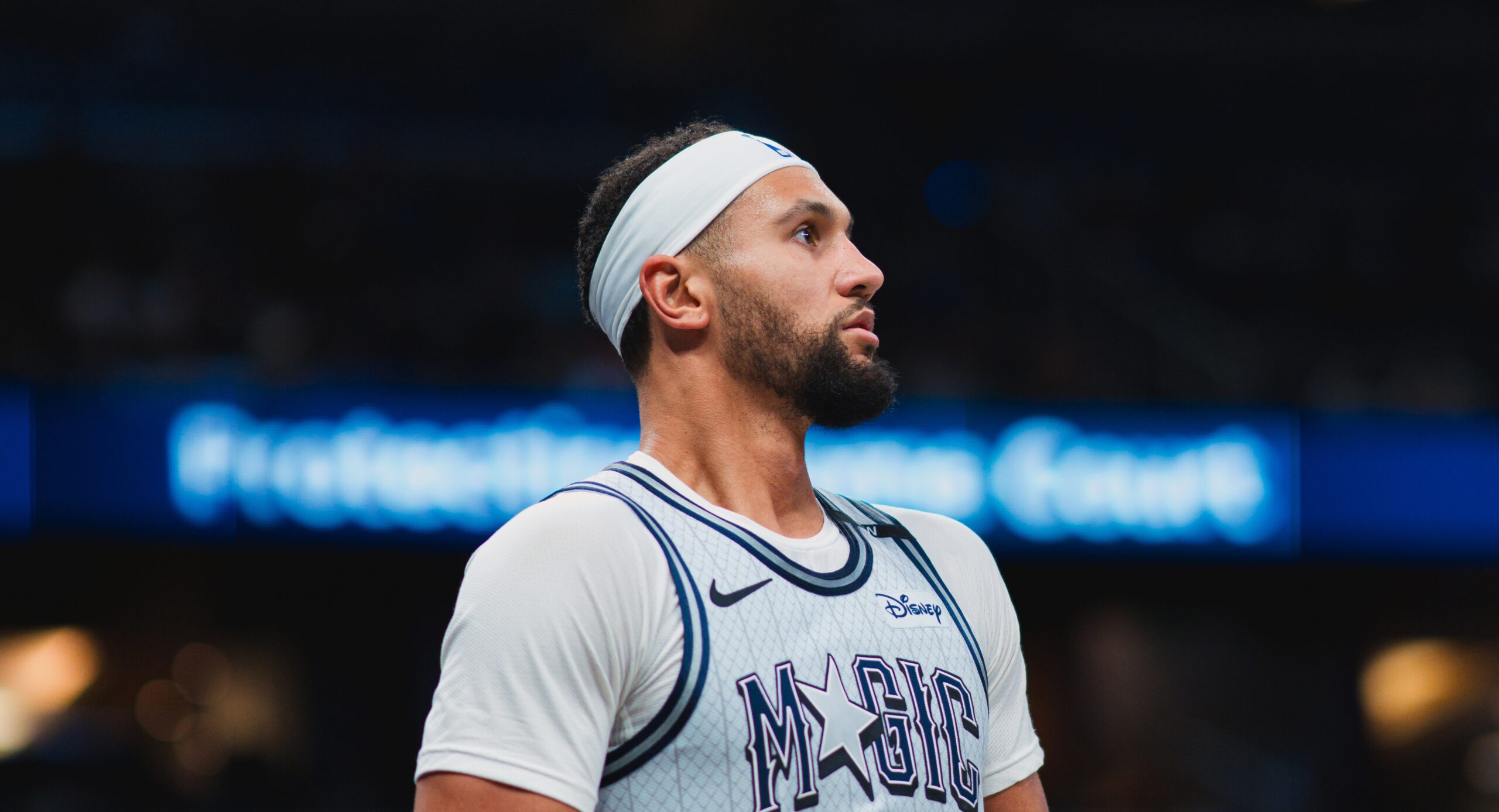
In a captivating moment from Episode 5 of the much-anticipated Netflix documentary “Court of Gold,” which premiered this week, viewers are given an unprecedented look into the men’s basketball tournament at the Paris Olympics.
During halftime of the Serbian national team’s semifinal match against the United States, NBA superstar Nikola Jokić passionately sketches a play on a whiteboard in the team’s locker room. The three-time NBA MVP eagerly shares tactical insights with his fellow players on how to counter a two-man play devised by Steph Curry and Joel Embiid. This level of access is a dream come true for basketball enthusiasts.
“If we had approached it as ‘We’re here to record your strategy session,’ the Serbian team likely would have dismissed us,” says Jake Rogal, the director of “Court of Gold.” “However, we adapted our approach to blend in. It’s all about timing—knowing when to observe and when to step back, which allows us to capture those authentic moments.”
As the year unfolds, it seems likely that “Court of Gold” will be recognized as one of the finest sports documentaries of 2023 due to its captivating content.
Also within this episode, viewers witness the camaraderie among the USA Basketball coaches—featuring Steve Kerr from the Golden State Warriors and Erik Spoelstra from the Miami Heat—along with managing director Grant Hill, as they relax on the steps outside Bercy Arena in Paris, celebrating their thrilling victory over Serbia with a beer.
The camera focuses on LeBron James, who is sitting nearby on the steps alone. Kerr offers him a cold beer, to which James enthusiastically replies, “Yeah, I’ll take one. Cheers to you all.”
Reflecting on this candid exchange, Rogal, who previously worked as a lead producer on “The Last Dance,” emphasized the significance of capturing such joyous moments. “When teams experience elation after a win like that against Serbia, the accessibility is remarkable. Their happiness creates an environment where they are almost unaware of our cameras.”
Rogal explains that the International Olympic Committee (IOC) only provided credentials for designated areas, leaving it up to the players and coaches to determine the extent of the access granted. “I approached the players as newcomers, expressing that we wished to document a unique experience in their lives without intruding on it. Our goal was to create something they could cherish in the future.”
Building rapport was essential for the production team. “We didn’t ask for everything all at once,” Rogal noted. “It was a gradual process of asking to capture small moments, which over time allowed us to gain their trust.”
Four distinct production teams were assigned to document the U.S., Canada, Serbia, and France, with standout personalities including Curry, Kevin Durant (who opened up about the significance of participating in the Olympics), France’s Nicolas Batum, Serbia’s Bogdan Bogdanović, and Canada’s Dillon Brooks. Notably, the documentary also covers the heart-wrenching moment when Victor Wembanyama faced disappointment following the gold medal loss to the U.S.
Rogal secured his role with the documentary through the encouragement of Connor Schell, a former ESPN executive now leading his own production company, and Jason Hehir, director of “The Last Dance.” As for his ambitions for the documentary’s success, Rogal expressed a desire for it to maintain relevance beyond its initial airing. “If viewers are still engaging with it after months amid the sea of available content, I’ll consider that a true success.”
A recent showdown saw the United States triumph 3-1 over Canada in the 4 Nations Face-Off, drawing an impressive average viewership of 4.4 million. The game peaked at 5.2 million viewers during a particular quarter-hour, marking it as the most-watched NHL telecast that wasn’t a Stanley Cup Final since a 2019 playoff match aired on NBC.
This decisive matchup saw a remarkable 369 percent increase in viewership compared to the average NHL games currently broadcast on ABC. For context, NHL postseason games last year across various networks averaged around 1.54 million viewers, showcasing the heightened interest in hockey leading up to the anticipated rematch scheduled for Thursday evening on ESPN.
In another highlight, The Athletic’s David Aldridge penned an insightful article addressing the NBA All-Star Game and its evolving nature amid changing viewer expectations.
While the event remains a lucrative offering for networks and serves as a major promotional platform for the sport, the quality of the All-Star Game experience has raised concerns. My dream scenario involves reimagining the event to feature six teams composed of two U.S. teams, one from Canada, two from Europe, and one representing stars from around the globe, allowing for various competitive formats akin to the successful “best-on-best” model adopted by the NHL.

Stephanie White offers a unique viewpoint from her experiences on both sides of the coach-media relationship. (Ethan Miller / Getty Images)
Stephanie White, the coach of the Indiana Fever and a broadcaster for ESPN, recently appeared on my “Sports Media” podcast. Her dual roles in sports make her insights particularly compelling.
During our 45-minute discussion, I inquired about how her experiences as a broadcaster influence her interactions with the media as a leading WNBA coach.
“I’ve always had a deep appreciation for the media and their essential work,” White remarked. “I value building relationships, but having seen the behind-the-scenes challenges, I understand that journalism is a profession that supports families and is rooted in genuine care for the sport.”
She added, “While there’s an abundance of information available online, hearing directly from players and coaches enriches the experience for viewers. This understanding has allowed me to foster a different perspective on media interactions and perhaps humanize it more effectively than some other coaches might.”
“Navigating tough questions and discussions is part of the process, which isn’t always comfortable. But I remind myself that they’re simply doing their job, and I aim to respond thoughtfully.”
Here are a few articles that caught my eye recently:
Over 3,000 pages of documents shed light on the betrayals that have led to a chaotic court battle, jeopardizing the future of Rupert Murdoch’s media empire. (Jonathan Mahler and Jim Rutenberg / The New York Times)
Canada is grappling with a ‘mind-boggling’ goalie crisis that spans decades. (James Mirtle and Dan Robson / The Athletic)
The lasting friendship of the UConn Huskies with a beloved fan is beautifully told in “Love, Abby.” (Sam Borden / ESPN)
Reeves Wiedeman from Vulture offers a comprehensive look at Lorne Michaels and the potential future of “Saturday Night Live.”
For women’s college basketball coaches, embracing motherhood is now openly celebrated. (Chantel Jennings / The Athletic)
This Medal of Honor recipient remarkably achieved ace pilot status in just one day. (Jon Guttman / Military Times)
A former Olympic snowboarder turned cocaine dealer is evading law enforcement while linked to Mexican cartels. (Jesse Hyde / Rolling Stone)
The NBA Dunk Contest remains exhilarating, although the surrounding culture has shifted. (Katie Heindl / SB Nation)
Sign up here for The Athletic’s weekly sports business newsletter, Money Call, authored by Dan Shanoff.
“S.N.L. ‘Weekend Update’: 50 Seasons of Satirizing News and Forging Stars.” (Dave Itzoff / New York Times)
Seven more massage therapists have come forward with allegations against Ravens’ Justin Tucker for inappropriate conduct. (Julie Scharper, Brenna Smith, and Justin Fenton / The Baltimore Banner)
A newly established spy unit is spearheading Russia’s clandestine operations against the West. (Bojan Pancevski / The Wall Street Journal)
The complex “relationship of dependence” between a banned coach and a Wimbledon champion is revealed. (Matthew Futterman and Charlie Eccleshare / The Athletic)
(Photo: Damien Meyer / AFP via Getty Images)










